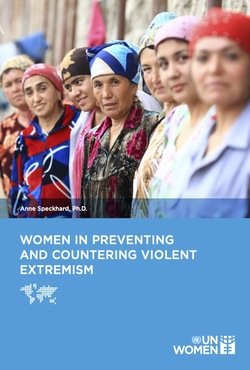By Anne Speckhard
In recent years, violent extremist activities have escalated dramatically. Around the world, such groups increasingly target women and women’s rights. Using sexual and gender-based violence, they terrorize communities and destroy the social fabric. Different UN Security Council resolutions have recognized that violent extremism has gender dimensions. These lead to varying consequences for women and girls, men and boys. Women are frequently seen only as victims of violent extremism. But in reality, women play multiple roles. They are on the frontlines of prevention and response. They lead civil society organizations and bolster community resilience. Promoting women as agents of peace recognizes their contributions to peacebuilding and prevention of violence and upholds respect for the human rights of everyone in areas afflicted by violent extremism. Preventing and countering violent extremism (P/CVE) is more effective, sustainable and meaningful if it includes the participation and perspectives of women. This training manual is designed for actors involved in P/CVE in Europe and Central Asia, including state officials, members of non-governmental organizations, community activists, staff of UN agencies, international and regional organizations, to help them understand violent extremism’s gender dimensions. It is designed as a training guide for staff and trainers who are working with different counterparts engaged in P/CVE and want to help create more effective and gender-sensitive responses. The five modules in this guide include learning objectives, explanatory text, warm-up activities, practical exercises, references for further reading, and empirical experiences from Europe and Central Asia.
Istanbul: United Nations Entity for Gender Equality and the Empowerment of Women (UN Women) 2021. 122p.




